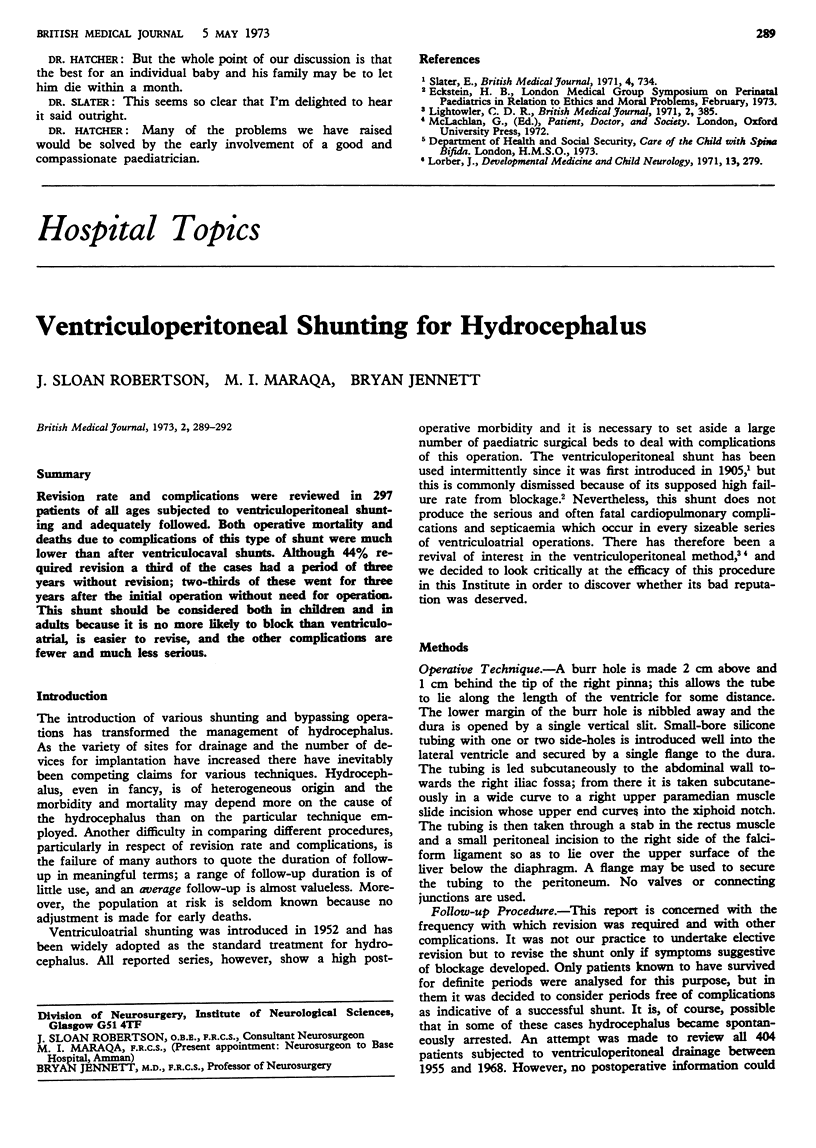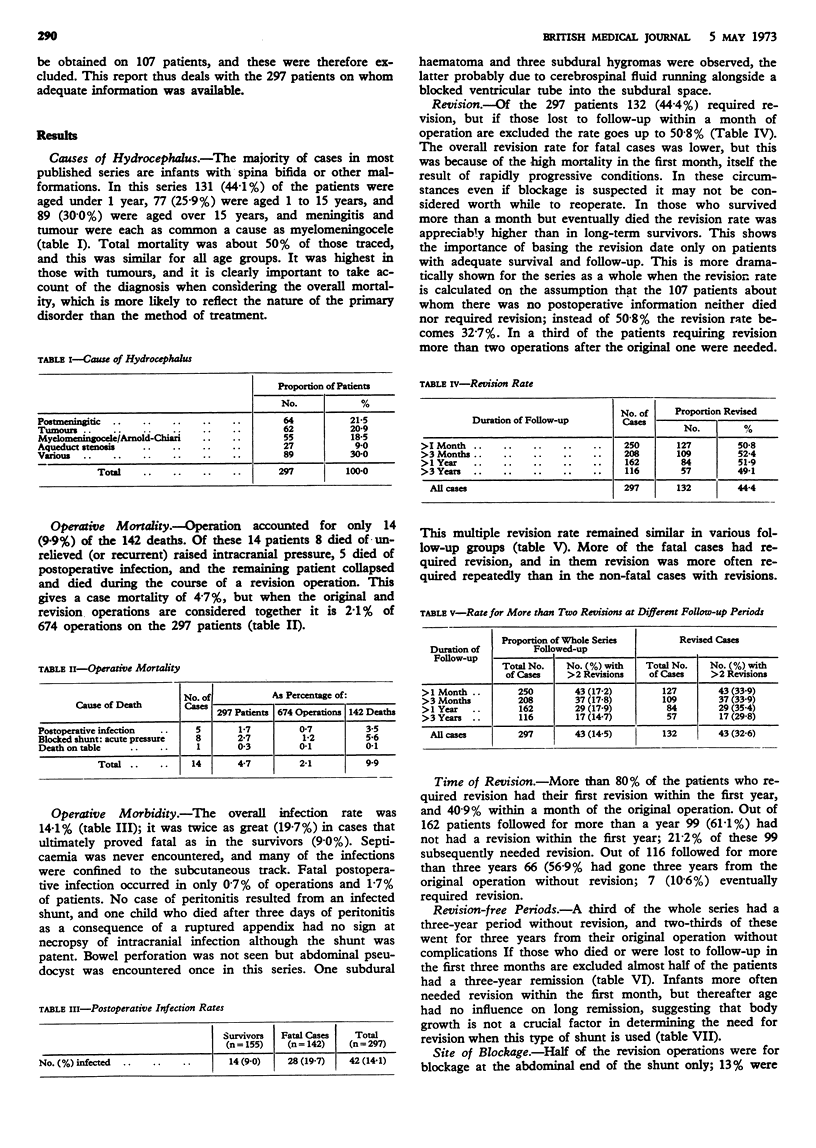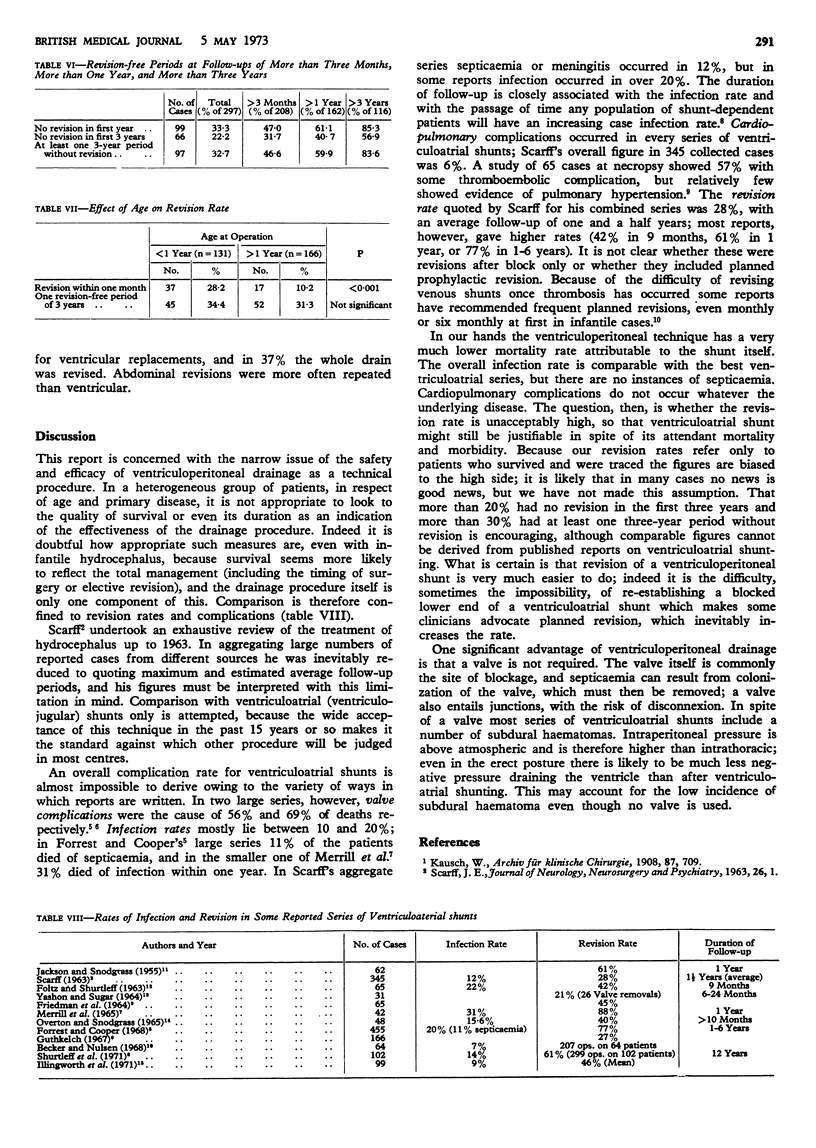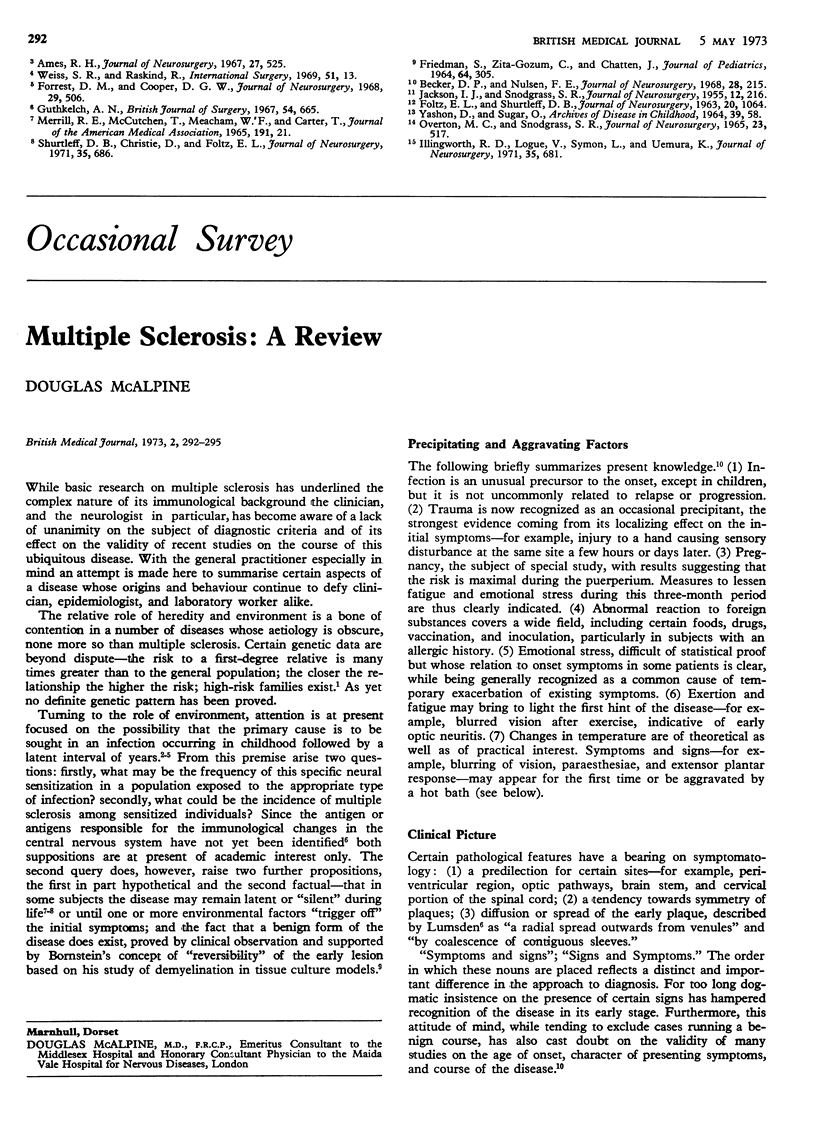Abstract
Revision rate and complications were reviewed in 297 patients of all ages subjected to ventriculoperitoneal shunting and adequately followed. Both operative mortality and deaths due to complications of this type of shunt were much lower than after ventriculocaval shunts. Although 44% required revision a third of the cases had a period of three years without revision; two-thirds of these went for three years after the initial operation without need for operation. This shunt should be considered both in children and in adults because it is no more likely to block than ventriculoatrial, is easier to revise, and the other complications are fewer and much less serious.
Full text
PDF



Selected References
These references are in PubMed. This may not be the complete list of references from this article.
- Ames R. H. Ventriculo-peritoneal shunts in the management of hydrocephalus. J Neurosurg. 1967 Dec;27(6):525–529. doi: 10.3171/jns.1967.27.6.0525. [DOI] [PubMed] [Google Scholar]
- Becker D. P., Nulsen F. E. Control of hydrocephalus by valve-regulated venous shunt: avoidance of complications in prolonged shunt maintenance. J Neurosurg. 1968 Mar;28(3):215–226. doi: 10.3171/jns.1968.28.3.0215. [DOI] [PubMed] [Google Scholar]
- FOLTZ E. L., SHURTLEFF D. B. FIVE-YEAR COMPARATIVE STUDY OF HYDROCEPHALUS IN CHILDREN WITH AND WITHOUT OPERATION (113 CASES). J Neurosurg. 1963 Dec;20:1064–1079. doi: 10.3171/jns.1963.20.12.1064. [DOI] [PubMed] [Google Scholar]
- FRIEDMAN S., ZITA-GOZUM C., CHATTEN J. PULMONARY VASCULAR CHANGES COMPLICATING VENTRICULOVASCULAR SHUNTING FOR HYDROCEPHALUS. J Pediatr. 1964 Mar;64:305–314. doi: 10.1016/s0022-3476(64)80182-7. [DOI] [PubMed] [Google Scholar]
- Guthkelch A. N. The treatment of infantile hydrocephalus by the Holter valve. Br J Surg. 1967 Aug;54(8):665–673. doi: 10.1002/bjs.1800540802. [DOI] [PubMed] [Google Scholar]
- Illingworth R. D., Logue V., Symon L., Uemura K. The ventriculocaval shunt in the treatment of adult hydrocephalus. Results and complications in 101 patients. J Neurosurg. 1971 Dec;35(6):681–685. doi: 10.3171/jns.1971.35.6.0681. [DOI] [PubMed] [Google Scholar]
- JACKSON I. J., SNODGRASS S. R. Peritoneal shunts in the treatment of hydrocephalus and increased intracranial pressure; a 4-year survey of 62 patients. J Neurosurg. 1955 May;12(3):216–222. doi: 10.3171/jns.1955.12.3.0216. [DOI] [PubMed] [Google Scholar]
- Overton M. C., 3rd, Snodgrass S. R. Ventriculo-venous shunts for infantile hydrocephalus. A review of five years' experience with this method. J Neurosurg. 1965 Nov;23(5):517–521. doi: 10.3171/jns.1965.23.5.0517. [DOI] [PubMed] [Google Scholar]
- Shurtleff D. B., Christie D., Foltz E. L. Ventriculoauriculostomy-associated infection. A 12-year study. J Neurosurg. 1971 Dec;35(6):686–694. doi: 10.3171/jns.1971.35.6.0686. [DOI] [PubMed] [Google Scholar]
- Weiss S. R., Raskind R. Twenty-two cases of hydrocephalus treated with a silastic ventriculoperitoneal shunt. Int Surg. 1969 Jan;51(1):13–19. [PubMed] [Google Scholar]
- YASHON D., SUGAR O. TODAY'S PROBLEMS IN HYDROCEPHALUS. Arch Dis Child. 1964 Feb;39:58–60. doi: 10.1136/adc.39.203.58. [DOI] [PMC free article] [PubMed] [Google Scholar]


